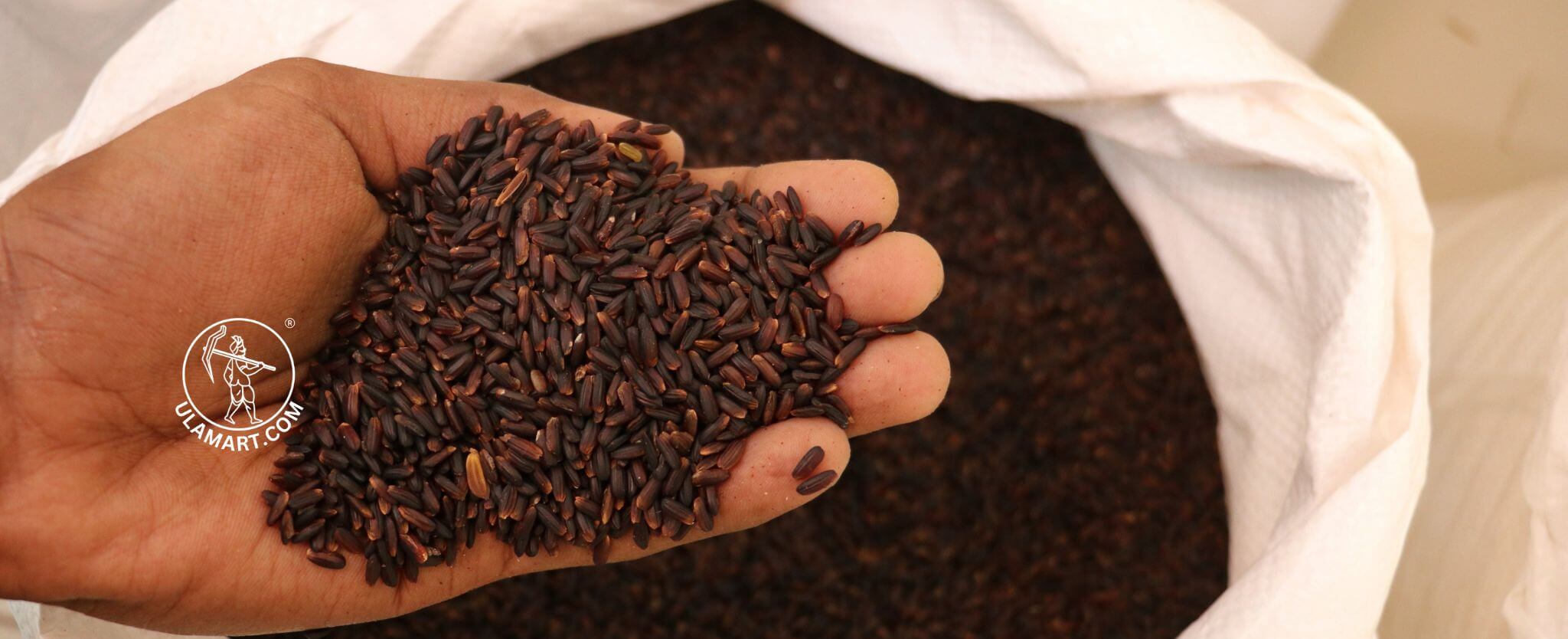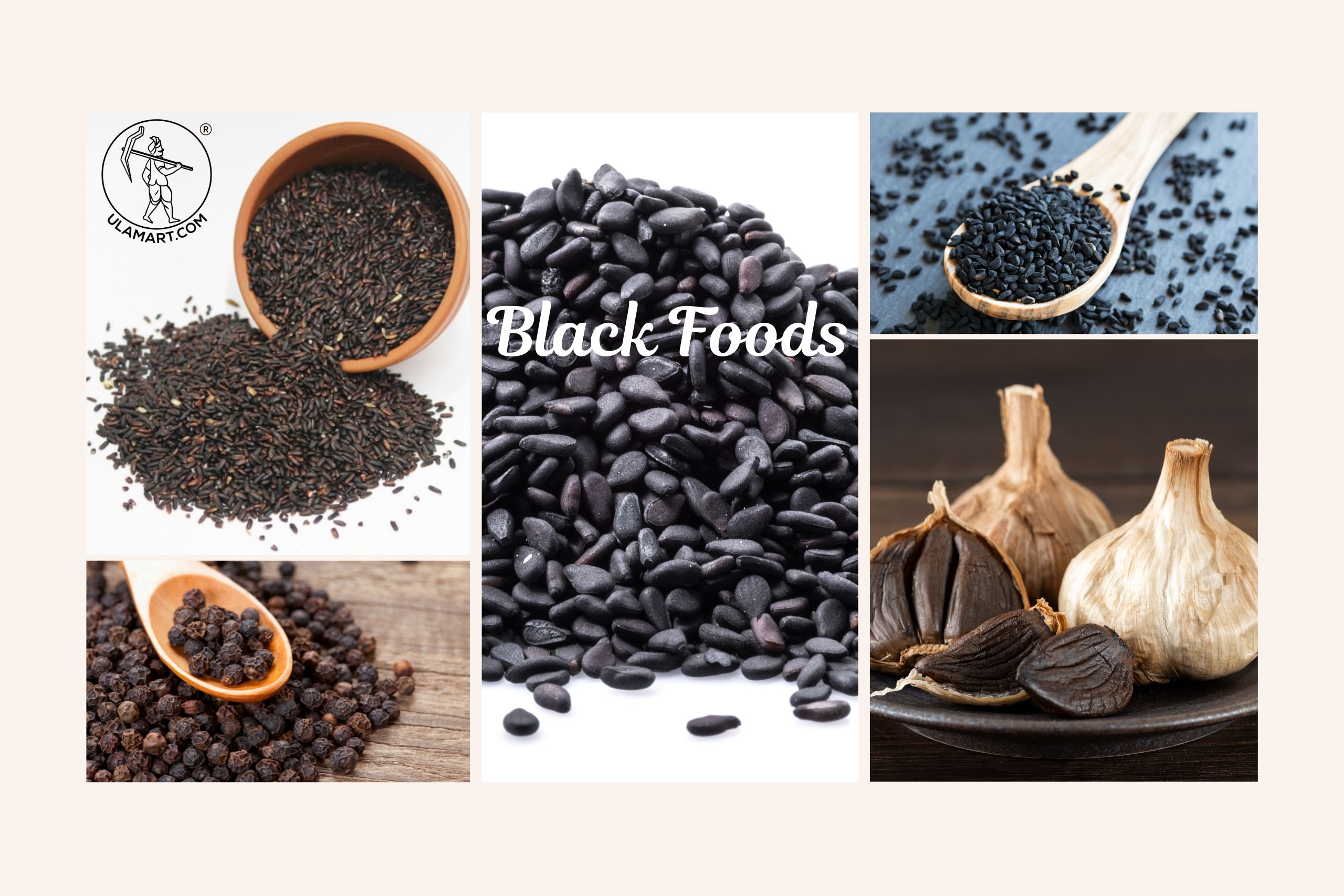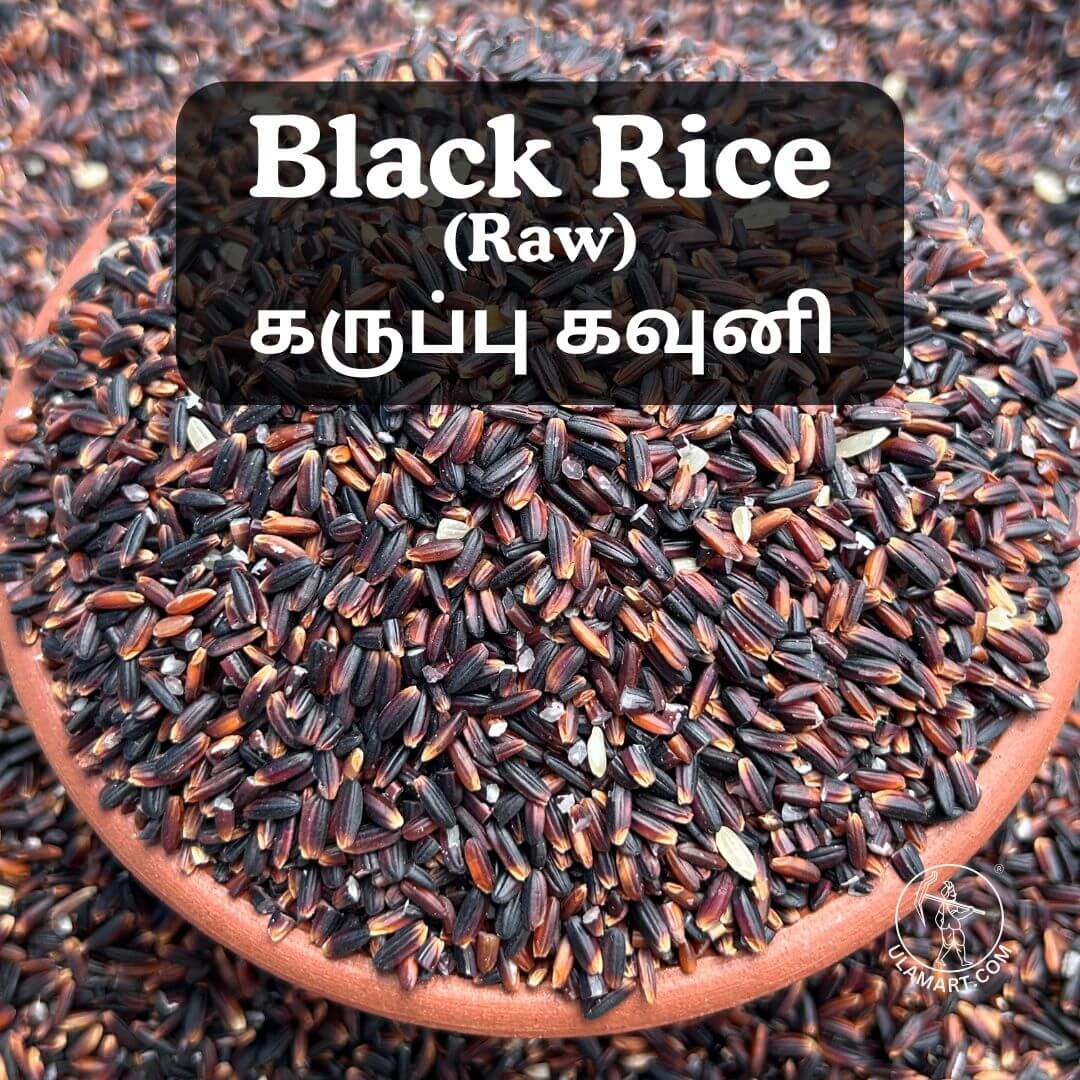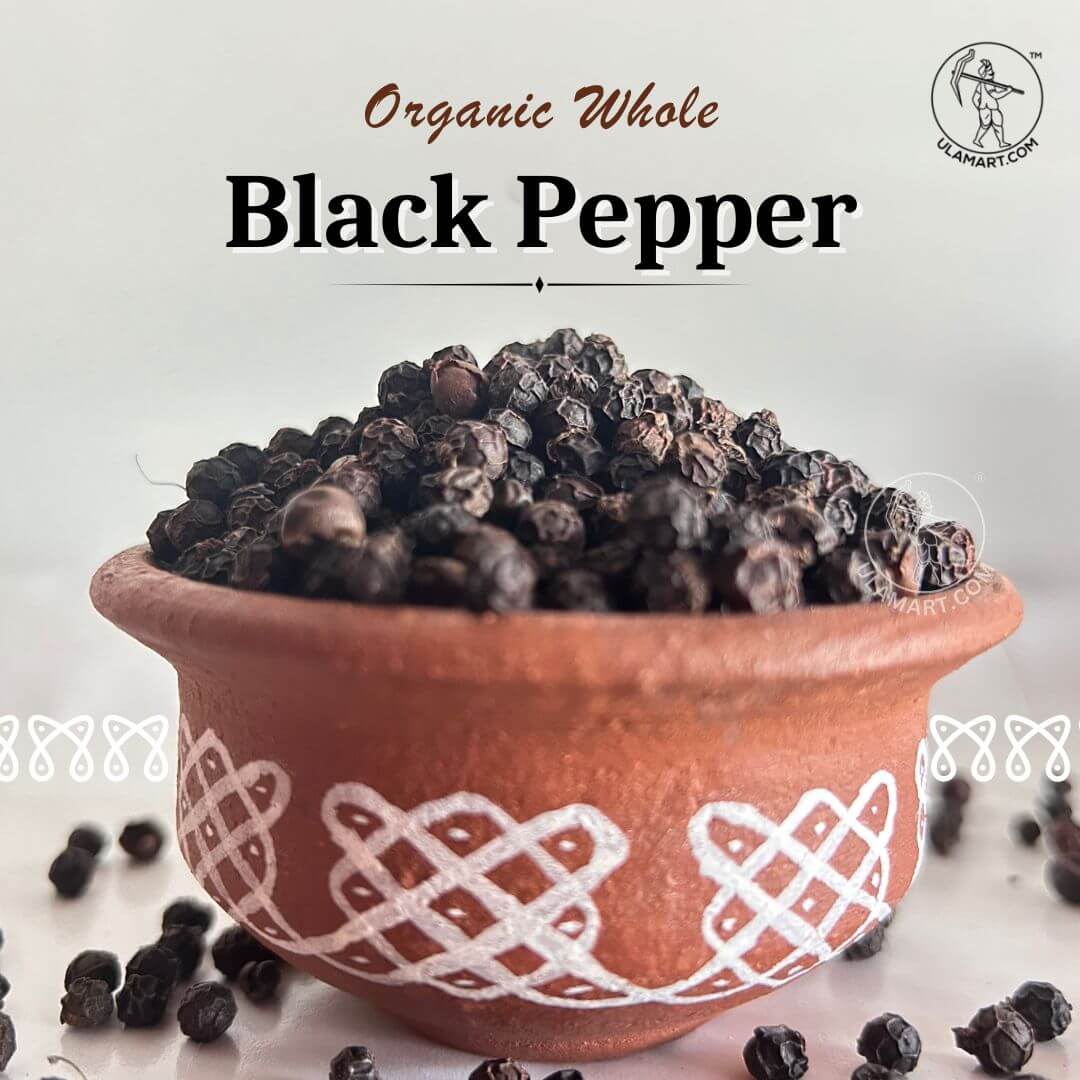We often hear about the importance of eating a colorful variety of foods for better health. Vibrant greens, sunny yellows, and rich reds dominate the conversation when it comes to nutritious choices.
However, there’s an entire spectrum of colors in the food world, and one group that’s often overlooked is black foods. These culinary gems contain natural pigments known as anthocyanins, which not only give them their striking hue but also pack them with a wealth of hidden nutrients and health benefits.
In this article, we’ll take a closer look at the world of black foods and explore the potential health advantages they bring.
1. What are Black Foods: Unlocking the Anthocyanin Riches
1. What are Black Foods: Unlocking the Anthocyanin Riches
Black foods, often overlooked in the realm of healthy eating, hide a treasure trove of anthocyanins – natural pigments responsible for their striking dark hue.
These anthocyanin-rich wonders, including black rice, lentils, sesame seeds, and grapes, boast an array of health benefits. From bolstering heart health to providing antioxidant protection, they’re culinary gems worth exploring.
2. Black Rice
Black rice, Originating from Asia, particularly China and India, black rice has a striking deep purple-black color when cooked. This unique rice variety is rich in anthocyanins, the same antioxidants found in blueberries and blackberries.
Black rice is nutritionally rich and is often considered one of the healthiest rice varieties.

Health Benefits of Black Rice
Antioxidant Powerhouse: Black rice is loaded with anthocyanins that help neutralize harmful free radicals, protecting cells from damage. Heart Health: Consuming black rice may promote heart health by reducing levels of bad cholesterol (LDL) and supporting healthy blood pressure. Digestive Health: The fiber content in black rice aids in digestion and helps maintain a healthy gut.
Nutritional Value | |
Calories | 130-160 calories |
Carbohydrates | 28-34 grams |
Protien | 2-3 grams |
Fat | 0.5-1 gram |
Dietary Fibre | 1.5-2.7 grams |
3. Black Pepper
Black pepper is a common spice found in almost every kitchen. It comes from the dried fruit of the flowering vine known as Piper nigrum, which is native to India but is now cultivated in various tropical regions.
Beyond its role in seasoning food, it offers several health benefits thanks to its active compound, piperine. Once Black pepper was considered as valuable as gold. The spice trade, often driven by the demand for black pepper, played a significant role in shaping world history and trade routes. Black pepper can be added to almost any dish to enhance its flavor and provide a subtle kick.

Health Benefits of Black Pepper:
Enhanced Nutrient Absorption: Piperine in black pepper enhances the absorption of certain nutrients, making your meals more nutritionally effective. Anti-Inflammatory: Black pepper may have anti-inflammatory properties, potentially aiding in the management of inflammatory conditions. Digestive Aid: It’s been used traditionally to support digestion and alleviate gastrointestinal discomfort.
Nutritional Value | |
Calories | 251 calories |
Carbohydrates | 64 grams |
Protein | 10 grams |
Fat | 3.3 grams |
Dietary Fibre | 26 grams |

4. Palm Jaggery
Palm Jaggery, also known as Karupatti, is a traditional sweetener in South India. Made from the sap of palm trees,It has a deep brown color and a rich, caramel-like flavor.
Palm jaggery is a healthier alternative to refined sugar, as it is unrefined and retains its natural nutrients. It is commonly used in South Asian and Southeast Asian cuisine, particularly in India, Indonesia, Malaysia, and Thailand.

Health Benefits of Palm Jaggery
Rich in Minerals: palm jaggery is a natural source of essential minerals like iron, calcium, and potassium. Sustained Energy: It provides a slow and steady release of energy, making it a healthier alternative to refined sugar. Ayurvedic Use: In Ayurvedic practices, palm jaggery is believed to have various medicinal properties, including aiding in digestion.
Nutritional value | |
Calories | 375-400 calories |
Carbohydrates | 97-99 grams |
Sugar | 96-98 grams (primarily sucrose) |
Protiens | 0.4-0.6 grams |
Fat | 0.1-0.3 grams |
Dietary Fibre | 0.1-0.5 grams |
5. Black Lentils
Black lentils, also known as Beluga lentils due to their resemblance to caviar, are small but pack a powerful nutritional punch.
Originating from the Middle East, these tiny legumes are high in protein, fiber, and essential nutrients such as iron and folate making them a fantastic addition to any diet. There are different types of black lentils, including whole black lentils and split black lentils (black urad dal). Both varieties are used in different dishes and have slightly different cooking times.
Health Benefits of Black Lentils
Protein-Packed: Black lentils are an excellent source of plant-based protein, making them a valuable option for vegetarians and vegans. Fiber Boost: The high fiber content in black lentils supports digestive health and promotes a feeling of fullness. Mineral Rich: These lentils provide essential minerals such as iron, which is vital for energy production and overall well-being.
Nutritional Value | |
Calories | 565-573 calories |
Carbohydrates | 23-25 grams |
Protiens | 17-18 grams |
Fat | 49-50 grams |
Dietary Fibre | 11-12 grams |
Black Sesame Seeds
Black sesame seeds have been cherished in Asian cuisines for centuries, and their health benefits make them a must-have in any kitchen. These tiny seeds are loaded with essential nutrients, including healthy fats, vitamins, and minerals.
Black sesame seeds are also used to produce sesame oil, which is a popular cooking oil in some parts of Asia.
Health Benefits of Black Sesame Seeds
Nutrient Density: Black sesame seeds are a concentrated source of vitamins, particularly B vitamins, and essential minerals like calcium and iron. Heart Health: The healthy fats in black sesame seeds may contribute to cardiovascular health by reducing cholesterol levels. Skin and Hair: Some believe that black sesame seeds can promote radiant skin and healthy hair due to their nutrient content.
Nutritional Value | |
Calories | 565-573 calories |
Carbohydrates | 23-25 grams |
Protiens | 17-18 grams |
Fat | 49-50 grams |
Dietary Fibre | 11-12 grams |
6. Black Grapes

Black grapes are not only a delicious and refreshing fruit but also a powerhouse of nutrients. They are loaded with antioxidants, vitamins, and minerals that promote overall health. Black grapes contain resveratrol, a compound known for its anti-aging properties.
Black grapes are typically in season during the late summer and early autumn months. The climate and soil conditions of a region can influence the flavor and characteristics of the grapes.
Health Benefits of Black Grapes
Antioxidant Rich: The anthocyanins in black grapes protect cells from oxidative damage and may reduce the risk of chronic diseases. Heart-Friendly: Consuming black grapes is associated with improved heart health, including lower blood pressure and reduced risk of heart disease. Resveratrol Boost: Black grapes are a source of resveratrol, a compound linked to numerous health benefits, including longevity
Nutritional Value | |
Calories | 69-71 calories |
Carbohydrates | 18-19 grams |
Protien | 15-16 grams |
Fat | 0.6-0.8 grams |
Dietary Fibre | 0.9-1.6 grams |
7. Black Garlic
Black garlic is a unique ingredient that undergoes a fermentation process, resulting in its dark color and distinctive taste.
It has a sweet and savory flavor with hints of molasses and balsamic vinegar. Black garlic is created at home by using a fermentation process that involves controlling temperature and humidity conditions. It can be a time-consuming process, taking several weeks to several months.
Health Benefits of Black Garlic
Antioxidant Power: The fermentation process increases the antioxidant content of garlic, which can help combat oxidative stress and inflammation. Heart Health: Black garlic may support heart health by reducing cholesterol levels and improving blood circulation. Digestive Aid: Some people find that black garlic is gentler on the stomach and may be better tolerated than fresh garlic.
Nutritional Value | |
Calories | 106-120 calories |
Carbohydrates | 24-29 grams |
Protien | 5-6 grams |
Fat | 0.4-0.5 grams |
Dietary Fibre | 2-3 grams |
8. Black Figs
Black figs, often known as mission figs, are beloved for their sweetness and versatility in both sweet and savory dishes. Native to the Mediterranean region, these dark-skinned fruits offer a burst of flavor and nutrition.
Figs are grown in many regions around the world, with different fig varieties suited to various climates. The Black Mission fig is one of the most common black fig varieties grown in the United States. In general, Figs are ancient fruits that have been cultivated and consumed for thousands of years.
Health Benefits of Black Figs
Fiber Rich: Black figs are an excellent source of dietary fiber, promoting digestive health and helping maintain a feeling of fullness. Mineral Bounty: They contain essential minerals like potassium, calcium, and magnesium, contributing to bone health and electrolyte balance. Natural Sweetness: Black figs are a healthier alternative to refined sugars when used as a natural sweetener in recipes.
Nutritional Value | |
Calories | 74-80 calories |
Carbohydrates | 19-20 grams |
Protien | 1 gram |
Sugar | 16-17 grams |
Fat | 0.3-0.4 grams |
Dietary Fibre | 2-3 grams |
9. Black Mushrooms

Black mushrooms, such as shiitake and black trumpet mushrooms, are prized for their unique flavor and medicinal properties. Originating from Asia, these mushrooms have found their way into various cuisines worldwide.
Health Benefits of Black Mushrooms
Immune Support: Black mushrooms contain compounds that may enhance immune function and protect against infections. Vitamin D: Some varieties of black mushrooms are natural sources of vitamin D, essential for bone health and overall well-being. Umami Enhancement: Their savory, umami-rich flavor makes them a popular ingredient in vegetarian and vegan dishes.
10. Points To Remember
Black foods are not only visually striking but also possess remarkable health benefits. From black rice and lentils to black sesame seeds and grapes, these ingredients are packed with essential nutrients and antioxidants.
Incorporating black foods into your diet can support heart health, improve digestion, boost immunity, and much more. So, the next time you plan your meals, don’t forget to explore the hidden power of black foods and experience their culinary and nutritional wonders.








